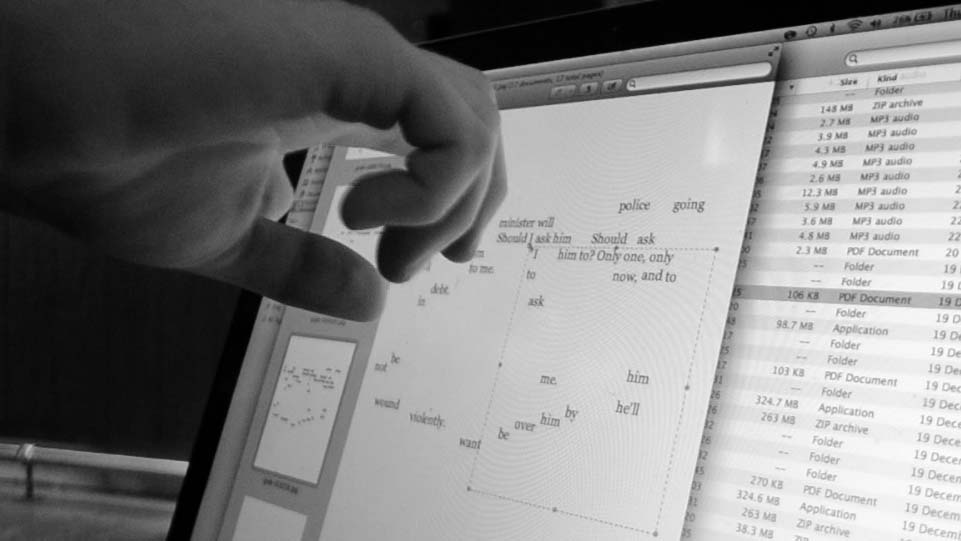
The Forgetful Typewriter is an on-going cross-disciplinary design and research project by London based designer Peter Aiello. It examines the prevalent themes of memory and technology through the design of a digital writing device that finds new contexts of use in personal forms of writing.


Latest Blog Post: Collaboration With Lyricist
Legitimates Being Emotional and Writing Emotionally
I collaborated with my friend Harry, the perfect person to participate with testing the software because of his creative background as a writer/lyricist...
- Memory & Technology: Interweave
Technology is having transformative consequences on our relationship with memory. Contemporary concerns highlight the interwoven nature of memory and technology, and how strongly these two concepts are now connected. This was the original territory of the project, which includes the capacity for technology to feature as a surrogate for biological memory, as well as the problematic consequences of permanently archiving memories as digital data. A range of cultural responses are emerging to counteract these effects, including cognitive techniques to practice memory, as well as the concept of expiration - attaching times and dates to the lifespan of personal data.
- Forgetful Typewriter
Inspired by the creative potential of this subject matter, this project progressed by translating this research into text-based experiments and developing prototypes for digital writing tools. Working in software culminated in a range of interactions for a text-editor that animatedly loses words. These programs are designed to resonate with themes of trust, loss and expiration, whilst finding new, meaningful contexts in personal forms of writing. This includes both expressive and creative, with user experiences that range from the playful to the therapeutic.
- Collaboration & Development
Thus far the programs have primarily been tested with a student audience, in domestic and group settings. User testing has been initiated through a number of workshops and exercises run by me. Insightful responses and collaboration has been essential for developing the software and generating new ideas. User research has highlighted the potential of the device as both a creative and therapeutic tool.
The research is ongoing and completely open to participants from a range of backgrounds, including writers, experts in psychology and programmers. A number of questions involving user experiences are still available for exploration and potential collaborators are invited to get in touch:

